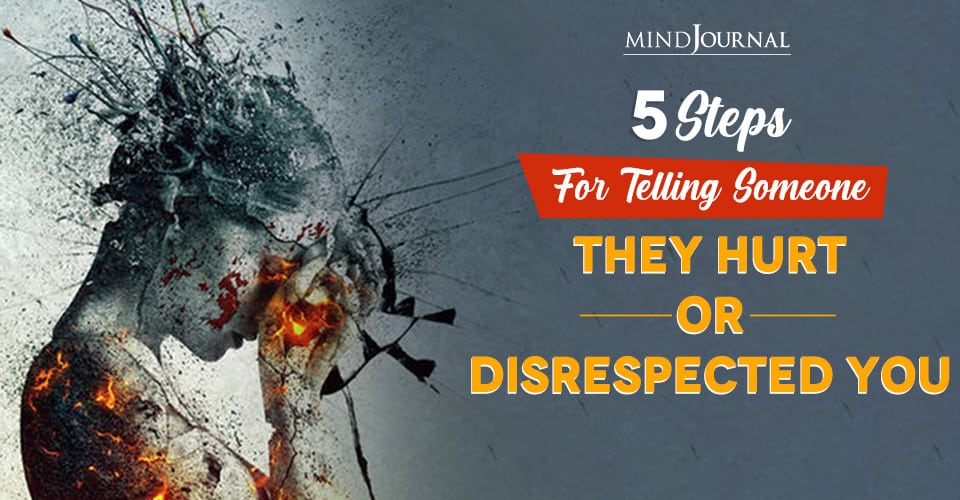When you feel hurt and disrespected by someone, it can be an overwhelming and annoying feeling. However, instead of getting into a fight or confrontation with someone who disrespected you, you can handle the situation in a more mature way, in order to make them understand their mistake.
I have a friend who constantly interrupts me and finishes my sentences. The worst part of this interaction is that what she says when she finishes my sentences is not what I intended to say. I love my friend, but there are times I am so frustrated with her… but then I shut down and quit talking.
How do you tell someone they frustrated, discounted, or hurt you, and tell them in a way that enriches, not harms, your relationship?
Telling someone directly how you feel about what they did is often uncomfortable but easier on your mind and body than holding your anger and fear inside. In my experience, when you share what you feel with the intention to improve your relationship because it is important to you, not to punish or hurt them back, they will hear you. They may get defensive when you tell them, but they won’t feel you are pushing them away. The adjustment you want to see will begin, even if they can’t completely change this habit.
Here are the five steps for sharing your feelings so you are heard. You can also view a video summary of these tips.
5 Steps For Telling Someone They Hurt Or Disrespected You
1. Start With Why What You Want To Say Is Important.
You might say, “I would like to share something with you because I value our relationship.” Or at work, you might say something like, “I know that us working well together will help us both reach our goals. Can I share something with you that could improve our collaboration?”
Related: 6 Subtle Forms of Disrespect in Relationships and How To Deal
2. Briefly Describe What Happened That Felt Hurtful Or Disrespectful.
Say, “When I was talking, you (said or did this).” Don’t go into a long story about what occurred or try to soften the blow by saying you know they didn’t mean to be offensive. One sentence that describes your experience of their behavior is enough.
The other person might interrupt you to explain themselves. Tell them you want to hear what they have to say, but you would like to finish first. Say this calmly, without anger, so your emotions diffuse instead of add to their resistance.
3. Say How Their Behavior Made You Feel—The Impact.
This statement is the critical piece of your delivery. They can’t debate how their actions made you feel. Cleanly say that it felt like what you had to say was not valuable. You feel angry, frustrated, hurt, scared, or you just give up when this happens.
Use “I” statements. Don’t blame them for not caring or judge them for being insensitive. This is how you feel when they act this way regardless of their intentions.

4. Ask For What You Need Going Forward.
What would you like them to do instead of what happened? Again, be specific, such as asking if they could allow you to finish your sentences, include you more in group conversations, or be open to honoring and discussing different ways of seeing things instead of debating what is right and wrong.
Then accept their response, knowing they heard your request. They may need time to process what you shared.
Related: Disrespecting Yourself? 12 Signs To Know (and How to Stop)
5. End By Reinforcing Why You Are Making This Request.
Tell them again why your relationship is important to them. You want both of you to feel good about your conversations. You hope they let you know if anything you do impacts your interactions, too.
If you don’t share when you feel badly in a conversation, you create distance instead of connection. Muster your courage to share your reactions and requests, knowing they can adjust even if the change takes time. If the relationship is important to you, it’s worth it.
See more tips on having effective conversations at www.Covisioning.com
Written By Marcia Reynolds Originally Appeared On PsychologyToday











Leave a Reply